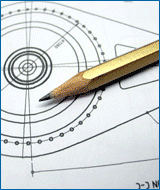|
Copyright © 2006 |
|
Home | The Law Office | Patents
Patents can be used to protect technical inventions for a maximum term of 20 years. The patent granting procedure subdivides into the patent application procedure, where the wording of the application documents is of the utmost importance as it defines the area and extent of the protective rights, into the examination, and into the actual granting procedure. Granted patents bestow upon the patent holder the exclusive right to exploit the invention commercially, that is, e.g., to manufacture it, offer it, market it, or to utilize it. National German PatentsScope of application: Exclusions: Prerequisites: Faced with the glutting of some domestic markets, even small and medium-sized businesses are often forced to expand the exportation of their products. Frequently, an expansion abroad will succeed only if local competitors, being quite at home on the foreign target market, are prevented from simply adopting the new product ideas. Yet a German patent can only serve as basis for legal action against any unauthorized use of the protected object in Germany, but not against the manufacture and sale of the respective product in other countries. Export-oriented companies are therefore well advised to register foreign protective rights ahead of time in order to secure the markets across the border. European PatentsThe registration of an invention as a European patent, which is subject to a uniform registration and examination procedure, will obtain patent rights protection in currently up to 32 European countries and 5 extension countries. Once the European patent has been granted, it will then be continued as national filing patent in each of the countries elected by the applicant. International Patents (PCT)The Patent Cooperation Treaty (PCT) enables an applicant to apply for protection in currently up to 136 countries (including extra-European ones), and then to go on to file national applications for protection in the countries of choice. |
|
